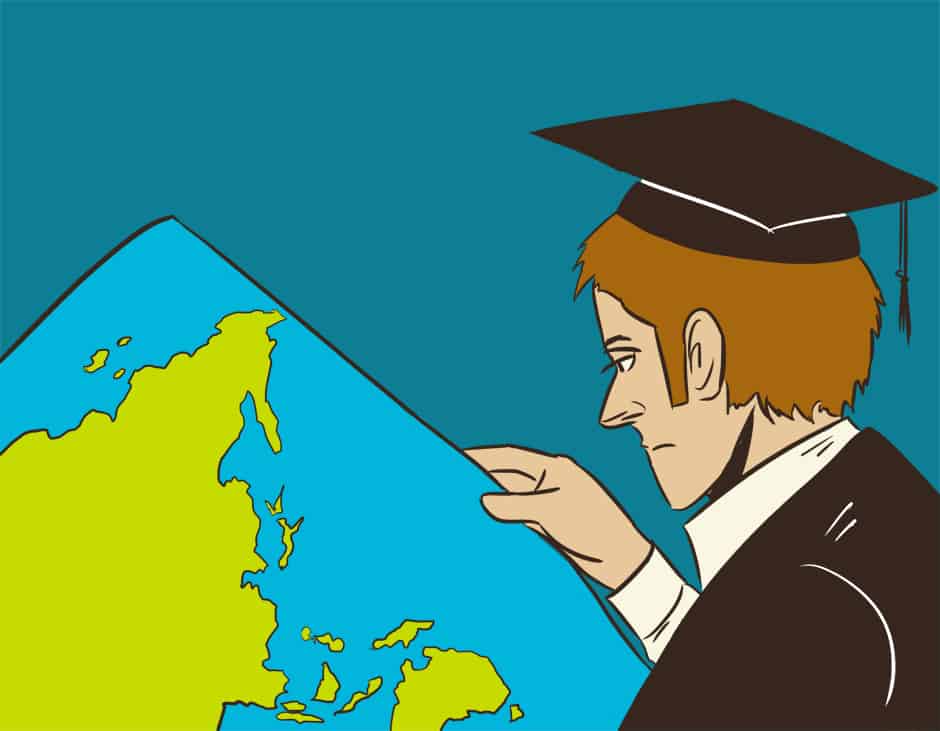Upper-year University of Toronto students who are considering graduate studies must choose between staying at one of the top research institutions in Canada and taking their talents elsewhere.
Many are finding ample reason to stay put. Of the 29,000 applicants to graduate studies at the University of Toronto in 2013, 4,000 already had an undergraduate degree from the university.
For those wishing to pursue graduate studies elsewhere, however, there is a propensity to head to the United States as opposed to other Canadian cities.
Students turning south of the border cite increased funding opportunities and prestige as incentives to study in the US.
Universities in international context
Locke Rowe, dean of the School of Graduate Studies, is not surprised that University of Toronto undergraduates are considering international graduate options.
Rowe said that there are many reasons students choose to go away for graduate studies — and it’s not because students think U of T is lacking.
According to Rowe, when students choose between graduate programs, they consider potential mentors and research clusters to be more important factors in their decision than the educational institution itself.
While U of T has strong clusters in some areas, it cannot specialize in everything.
“Often, you can imagine that the advisor that students want to work with or the concentration of faculty that they’re attracted to are going to be in the US,” said Rowe, referencing the fact that the number of US academic offerings is massive in comparison to Canadian options.
Rowe also cited fatigue as a reason that students might leave U of T for destinations in the US. “[O]ften, these are undergrads that grew up in Toronto, they’ve done their undergraduate degree, and they look in front of them and they say, if I’m going to do grad school, wouldn’t it be great to go somewhere [else]?”
To balance the number of students leaving, there is a significant inflow of international students attracted to the University of Toronto’s graduate offerings. Rowe cited his own area of expertise, evolutionary biology, as an example of a flourishing research cluster at U of T.
“We do have a large evolutionary genetics group [and] we have a large systematics group. These are the groups that pull people in from the US and Europe.”
Seventeen per cent of graduate students at the university are international students, while in 2013–2014, another 14 per cent came from Canadian provinces outside of Ontario.
Rowe said that the sheer number of incoming students is evidence that U of T is competitive on an international scale. “Our comparators are large, top public institutions in the US,” he said.
Navigating graduate options
Some prospective graduate students at the University of Toronto cite more than just research clusters and faculty as factors when assessing graduate schools.
When asked about what she takes into consideration for graduate education, Sarah Koval, third-year music history and theory major, cited funding as a top concern.
Koval was previously admitted to the University of Victoria for a master’s degree in English following completion of an English literature degree from Queen’s. She said that funding for her Canadian program was plentiful.
Her experience looking for a musicology graduate program, however, has not been the same.
“With music, I just felt right away that it was more of an American scene compared to English,” she said, adding: “In the US, they are explicit about exactly how much funding you get, and it doesn’t just cover tuition. It covers the cost of living.”
Harvard University, for instance, guarantees six years of tuition and living expenses funding for those admitted to the musicology PhD program.
For Koval, reputation is also an important factor in her decision. “One of the ways I research is I look at professors I like and I look at where they’ve gone to school… They tend to have gone to well-known schools,” she said.
Virginia Georgallas, a recent graduate from the University of Toronto, agreed that going to a school with an international reputation has its advantages post-graduation.
“Because the schools in the US do have such excellent reputations, attending a famously prestigious school (i.e. Harvard or Yale) will likely enhance your career prospects,” Georgallas said.
Of the programs that Koval is looking into, she found that the US offers more direct entry into PhD programs, as opposed to Canadian programs, in which she would have to go through an additional masters’ stream. She has also been encouraged to broaden her horizons beyond U of T, and thinks that the US is the place to do that.
“There’s only one or two good schools in Canada, so if I felt like I wanted to switch, where would I switch?” Koval said.


